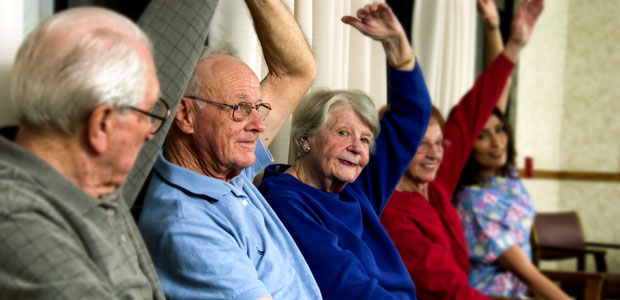Advertisement
Exercise Can Benefit the Very Elderly and Frail
A recent Montreal study has countered the belief that the very elderly and frail should not exercise. Instead, the study researchers say that exercise can benefit all elderly people—even those who are frail. The study’s press release refers to the geriatric definition of frailty: “characterized by decreased functional reserves in an individual, which increases vulnerability … Continued

A recent Montreal study has countered the belief that the very elderly and frail should not exercise. Instead, the study researchers say that exercise can benefit all elderly people—even those who are frail.
The study’s press release refers to the geriatric definition of frailty: “characterized by decreased functional reserves in an individual, which increases vulnerability to stressors and the risk of adverse health effects.” The press release further notes that as life expectancy increases, frailty does as well. Frailty can make exercise both difficult and potentially dangerous, leading many frail seniors to become sedentary.
Throughout this study, participants were carefully supervised during their exercises, which occurred three times per week for a total of 12 weeks. The seniors who participated in the study experienced improved quality of life and cognitive functioning such as memory, as well as improved physical functioning. These improvements were deemed “major.”
The researchers hope to adapt the program so it can be used widely; however, for the time being, frail seniors can consult with their health care practitioners about how they can begin being active safely, to reap the many health benefits of exercise.
Check out these alive articles about healthy aging:





